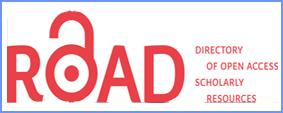STUDY OF HARUN NASUTION'S THOUGHTS ON RENEWAL IN ISLAM
Abstrak
This research examines the renewal of Harun Nasution's thinking about Islam in Indonesia. With the aim of research to construct his thoughts, both in the form of offers in the form of ideas about Islamic theology and renewal in thinking about the development of Islamic higher education. Using the descriptive-analytic method, the researcher answered the problem formulation regarding Harun Nasution, how Harun Nasution formulated reform in Islam. This research uses a library approach (Library Research), by taking library sources written by Harun Nasution, as the main source (Primary Source) and other books that discuss Harun Nasution's thoughts, especially those related to the renewal of Islamic thought, as a second source (Secondary Source). The researcher then examined several research findings regarding Harun Nasution's thought, in addition to analyzing the works regarding the Renewal of Harun Nasution's Islamic Thought. The results of this thesis research show that Harun Nasution's concept of thought regarding renewal in Islam is rational. The rationality of his thinking was built on classical Muslim thought and modern Muslim thinkers. The influence of classical thinkers can be found from the thinker Ibn. Sina and Ibn. Rushd, who has a rational explanation of religious science and general science. Modern Muslim thinkers were influenced by Muhammad Abduh, in the aspect of the importance of using reason in understanding religion. Regarding Harun Nasution's contribution to the development of Islam in Indonesia, Harun was strongly influenced by the reforms of Muhammad Abduh, who attempted to overcome adversity and create the belief that fate can be determined by oneself, responding to the various impacts of problems from the modernization movement. And developed by Harun Nasution through ideas when he returned home. The relevance of Harun Nasution's thoughts to education in Indonesia. What was initiated by Harun Nasution was the development of morals and morals in students. As stated in the National Education System Law No. 20 of 2003.
Referensi
Aronim, Ensiklopedi Islam, (Ihtiar Baru Vanhauve, Jakarta 2002)
Faisal Ismail, Studi Islam Kontemporer, (Yogyakarta: IRCiSoD, 2018),
Gunawan, Peta Kemunculan Pemikiran Modern dalam Islam, dalam ath Thariq Jurnal Dakwah dan Komunikasi, V 3, no. 1, Agustus 2019
Hasan Basri Jumin, Sains dan Teknologi dalam Islam, (Jakarta: PT. Raja Grafindo Persada, 2012),
Zaim Uchrowi dan Ahmadie Thaha, ed., Riwayat Hidup Harun Nasution, Tim Panitia Refleksi Pembaharuan Pemikiran Islam; 70 Tahun Harun Nasution,
Kastolani, Islam dan Modernitas; Sejarah Gerakan Pembaharuan Islam di Indonesia, (Yogyakarta: Trussmedia Grafika, 2019)
Kusmana, Mengenal Ayang Utriza Yakin; Intelektual Muslim Indonesia Jebolan Prancis (Bag.1), Artikel ini
Diakses pada 21 November 2020, dari https://bincangsyariah.com/khazanah/mengenal-ayang-utriza-yakin-intelektual-muslim-indonesia-jebolan-prancis-bag-1/.
Machasin, Islam Dinamis Islam Harmonis, (Yogyakarta: LkiS, 2011),
Muhammad Muhtarom Ilyas, Tiga Aliran Pembaharuan; Westernisme, Islamisme, dan Nasionalisme, dalam Jurnal Sosial Humaniora, Vol. 7, no. 2, November 2018
Nur AlHidayatillah, Pembaharuan Pemikiran dalam Islam, dalam Jurnal An-Nida’ V 42, no. 1, Januari-Juni 2018,
Rusmala Dewi, Isu-isu Pembaharuan Islam di Beberapa Negara Perspektif Sejarah, dalam Nurani, Vol 16 no. 1, Juni 2016
Roikhan Mochamad Aziz, Islam dan Ilmu Pengetahuan, (Jakarta Selatan: Salemba Diniyah),
Romdoni Muslim, 70 Tokoh Muslim Indonesia; Pola Pikir, Gagasan, Kiprah, dan Falsafah, h. 105
Samrin, Modernisasi Islam di India, dalam Al-Munzir, Vol 8, no. 1, Mei 2015,
Salinan Undang-undang Sisdiknas Nomor 20 Tahun 2003, n.d, 3.
Tim Penyusun, Pedoman Akademik Program Strata 1 Universitas Islam Negeri (UIN) Syarif Hidayatullah Jakarta 2013-2014
Zaim Uchrowi dan Ahmadie Thoha, ed., Riwayat Hidup Harun Nasution; Tim Panitia Refleksi Pembaharuan Pemikiran Islam; 70 Tahun Harun Nasution,




.png)









